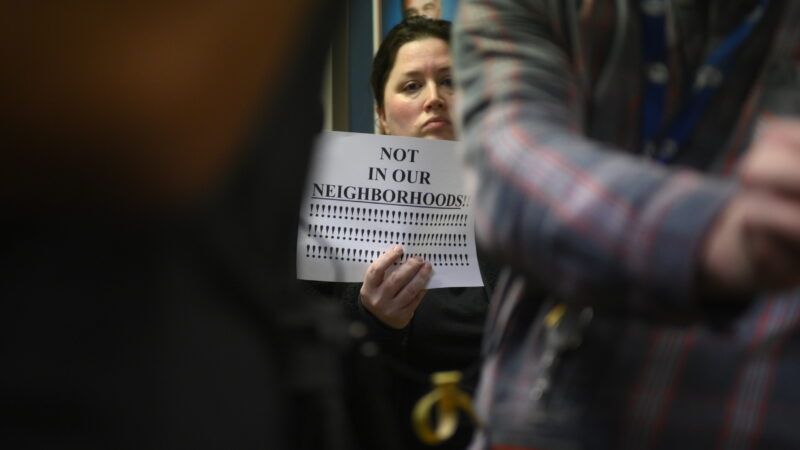Philadelphia Safe Injection Site Hits Another Legal Roadblock
An appeals court panel rules the Controlled Substance Act's "crackhouse" provision forbids Safehouse from creating the facility.

The fight in Philadelphia to open the nation's first facility for intravenous drug users to safely inject drugs faced another setback last week when a federal court declined to reconsider a ruling that put a halt to the site's opening.
A "safe injection facility" (SIF) is an indoor location where people can use intravenous drugs under medical supervision and safe from arrest. Proponents of these facilities say they save lives by treating overdoses, offering guidance for people seeking addiction treatment, and providing drug users with a sterile and safe environment.
Several SIFs exist in other countries, but none operate openly in the United States. There have been pushes to allows SIFs in cities with high numbers of people who inject drugs in public, like San Francisco, Seattle, and Philadelphia.
Last year, a district court ruled in favor of Safehouse, the nonprofit attempting to open a SIF in Philadelphia. But this past January, a three-judge panel of the U.S. Court of Appeals for the 3rd Circuit issued a 2–1 decision against Safehouse. The court ruled that opening the facility would be in violation of a provision of the federal Controlled Substances Act known as the "crackhouse statute." This provision makes it illegal to "knowingly open, lease, rent, use, or maintain any place, whether permanently or temporarily, for the purpose of manufacturing, distributing, or using any controlled substance."
"Congress has made it a crime to open a property to others to use drugs," the opinion said. "And that is what Safehouse will do."
On March 24, the same court dismissed a motion for the case to be retried before a full panel of circuit court judges.
Ronda Goldfein, an attorney and the vice president of Safehouse, tells Reason that there are still legal avenues available to continue the fight for a SIF in Philly.
"We can go to the Supreme Court [to challenge the application of the crackhouse statute]," says Goldfein. "We can also go back to the district court because one of our original claims is that, as people of faith and conscience, we are compelled [to do this work] by our religious beliefs."
Safehouse's board of directors includes two members of the clergy and a former seminarian. Goldfein says that these members became involved because their religious convictions motivate them to save lives. She argues that, by preventing Safehouse from opening, the court has substantially burdened their exercise of religion and has therefore violated the Religious Freedom Restoration Act.
Goldfein says she hopes to get tacit support from the Biden administration similar to the Cole Memo, an Obama-era document that instructed federal agencies not to prosecute most marijuana-related offenses.
Safehouse has had to endure more than just legal battles in its effort to open the country's first SIF. The project has also faced backlash from residents near the proposed site.
In South Philadelphia, the announced location of the facility, some residents felt blindsided and accused Safehouse of trying to sneak the injection site in under their noses. The first public meeting that Safehouse held regarding opening a SIF there was a press conference announcing the facility would open in a week.
"We were told, not asked," says Billy Lanzilotti, a local Republican ward leader who helped organize protests against the proposed injection site. "They just told us a week before. That's not how we do things in South Philly."
Lanzilotti tells Reason that he and other residents were concerned about the injection facility's close proximity to several daycares and schools, including some housed in the same building as the proposed site.
"After they get high where are they going to go? They are going to wander out into the street and past the three daycares within two blocks [of the site]."
Goldfein denies the characterization that Safehouse acted surreptitiously. She says that board members, like former Pennsylvania Gov. Ed Rendell, had been talking to local politicians and community leaders about a South Philadelphia location for some time before the announcement.
"If we were trying to sneak this in," says Goldfein. "We would not [have had] a press conference to tell [the community] what we were doing."
Eventually, Safehouse's landlord caved in to pressure from the community and canceled the organization's lease.


Show Comments (23)